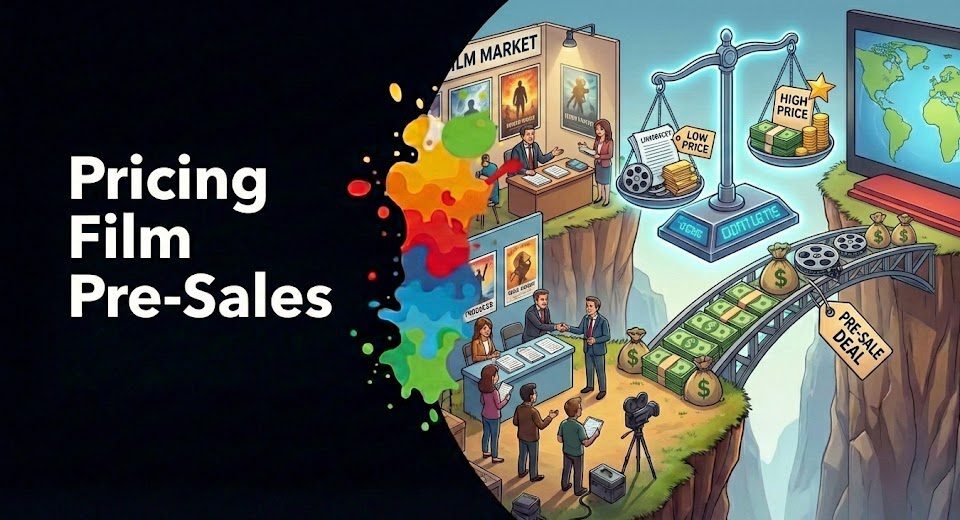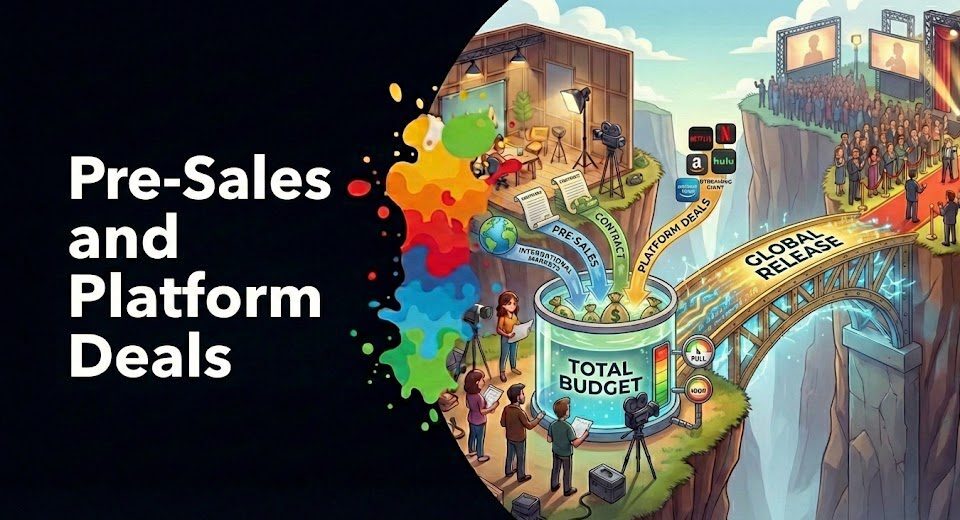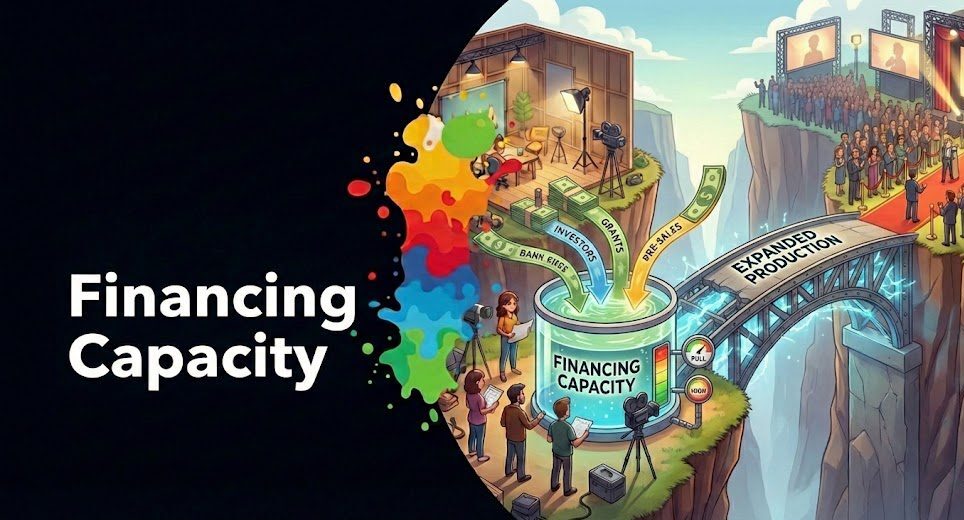Are you looking to streamline your operations, maximize efficiencies, and drive success in the fast-paced world of entertainment? If so, then you understand the critical role that vendor management plays in achieving these goals. From content acquisition to post-production, localization, and distribution, effective vendor management can make or break a project in the entertainment industry. In this article, we will explore the importance of vendor management in the entertainment industry and how it can benefit key stakeholders such as Content Acquisition Executives, Production House Executives, Streaming Platform Executives, and more.
Vendor management is the process of overseeing relationships with external suppliers and service providers to ensure that they deliver the goods and services needed to support the organization’s goals. In the entertainment industry, where collaboration with various vendors is essential to bring content to audiences around the world, effective vendor management is crucial.
For Content Acquisition Executives, vendor management is essential in sourcing and acquiring high-quality content for their platforms. By building strong relationships with content creators, distributors, and production houses, Content Acquisition Executives can secure the best content for their audiences, ensuring a competitive edge in the market.
Production House Executives rely on vendor management to coordinate with post-production managers, localization heads, and other vendors to bring their creative visions to life. By managing these relationships effectively, Production House Executives can ensure that projects are completed on time and within budget, leading to successful outcomes.
Localization heads play a key role in adapting content for global audiences, and vendor management is crucial in sourcing the right partners for translation, dubbing, and subtitling services. By working closely with vendors, localization heads can ensure that content resonates with audiences in different markets, driving engagement and viewership.
Content Distribution Leaders rely on vendor management to secure partnerships with streaming platforms, broadcast networks, and other distribution channels. By managing these relationships effectively, Content Distribution Leaders can expand the reach of their content and maximize revenue opportunities.
In the competitive landscape of the entertainment industry, Content Financing & Investment Executives rely on vendor management to identify strategic partners for funding and investment opportunities. By building strong relationships with financial institutions, production companies, and other vendors, Content Financing & Investment Executives can secure the resources needed to bring projects to fruition.
Get Your Vitina Membership Today!

Streaming Platform Executives understand the importance of vendor management in sourcing and licensing content for their platforms. By partnering with content creators, distributors, and other vendors, Streaming Platform Executives can offer a diverse range of content to attract and retain subscribers, driving growth and profitability.
Broadcast Network Programming Heads rely on vendor management to secure programming and scheduling agreements with content providers and production houses. By managing these relationships effectively, Broadcast Network Programming Heads can curate a compelling lineup of content that appeals to their target audience, driving ratings and advertising revenue.
Sales & Business Development Directors in Entertainment rely on vendor management to identify new partnership opportunities and drive revenue growth. By building strong relationships with vendors, Sales & Business Development Directors can secure deals that align with the organization’s strategic objectives, leading to increased sales and profitability.
Vendor Sourcing and Procurement Managers play a critical role in vendor management by identifying and evaluating potential suppliers, negotiating contracts, and monitoring vendor performance. By working closely with vendors, Vendor Sourcing and Procurement Managers can ensure that the organization receives high-quality goods and services at competitive prices, driving cost savings and operational efficiency.
Strategic Partnerships Managers rely on vendor management to cultivate and maintain relationships with key partners, sponsors, and collaborators. By managing these relationships effectively, Strategic Partnerships Managers can create mutually beneficial opportunities that drive brand awareness, audience engagement, and revenue growth.
International Content Licensing Managers understand the importance of vendor management in securing licensing agreements with content creators, distributors, and production houses around the world. By managing these relationships effectively, International Content Licensing Managers can expand the organization’s content library, reach new markets, and drive international growth.
Marketing and Audience Development Leaders in Media rely on vendor management to identify and engage with marketing agencies, PR firms, and other vendors to promote content and build audience engagement. By working closely with vendors, Marketing and Audience Development Leaders can create impactful campaigns that drive awareness, engagement, and loyalty among target audiences.
Market Research and Insights Analysts in Entertainment rely on vendor management to source data and insights from research firms, analytics providers, and other vendors to inform strategic decision-making. By managing these relationships effectively, Market Research and Insights Analysts can access timely and accurate information that drives competitive advantage and business growth.
In conclusion, vendor management is a critical component of success in the entertainment industry. By building strong relationships with external suppliers and service providers, key stakeholders such as Content Acquisition Executives, Production House Executives, Streaming Platform Executives, and others can drive efficiencies, maximize opportunities, and achieve their business objectives. As the entertainment landscape continues to evolve, effective vendor management will be essential in navigating the complexities of the industry and staying ahead of the competition.
Key Takeaways:
1. Effective vendor management is crucial in sourcing high-quality content, coordinating production processes, and securing distribution partnerships in the entertainment industry.
2. Key stakeholders such as Content Acquisition Executives, Production House Executives, Streaming Platform Executives, and others rely on vendor management to drive success and achieve their business objectives.
3. Building strong relationships with external suppliers and service providers is essential in maximizing efficiencies, minimizing risks, and driving growth in the competitive landscape of the entertainment industry.
FAQs:
1. What is vendor management in the entertainment industry?
Vendor management in the entertainment industry involves overseeing relationships with external suppliers and service providers to ensure that they deliver the goods and services needed to support the organization’s goals.
2. Why is vendor management important in the entertainment industry?
Vendor management is important in the entertainment industry as it helps key stakeholders such as Content Acquisition Executives, Production House Executives, Streaming Platform Executives, and others to streamline operations, maximize efficiencies, and drive success in a competitive landscape.
3. How can effective vendor management benefit organizations in the entertainment industry?
Effective vendor management can benefit organizations in the entertainment industry by driving efficiencies, minimizing risks, maximizing opportunities, and achieving business objectives through strong relationships with external suppliers and service providers.





































